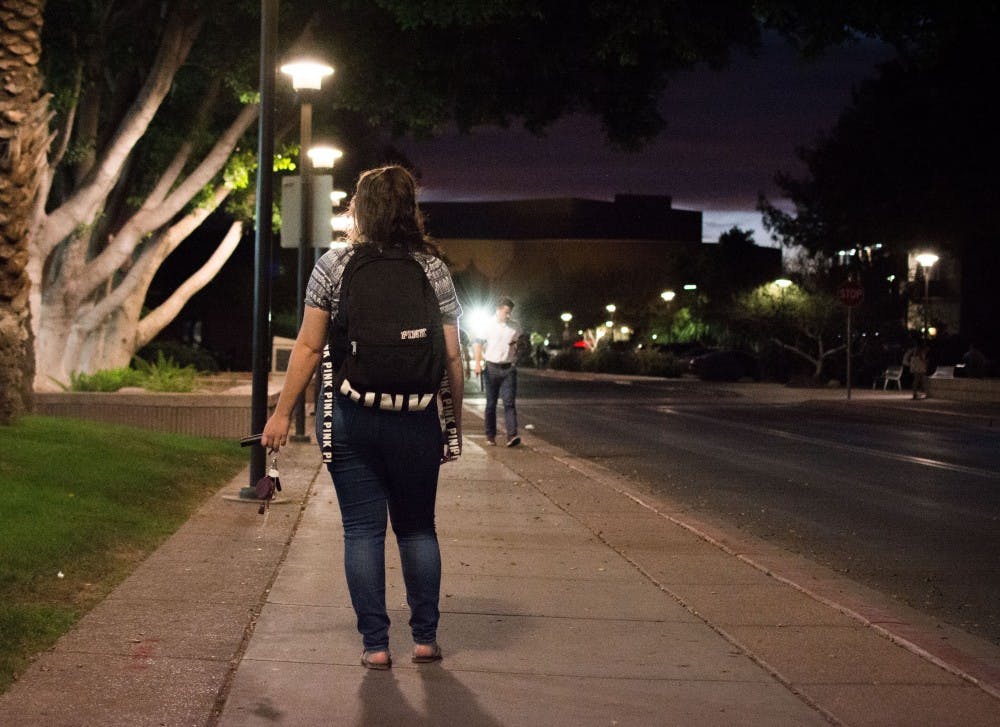Students could be able to carry non-lethal weapons on Arizona public college campuses if one lawmaker has his way. Proponents say the bill is needed to address safety concerns on campus, while opponents say the bill is too broad and could jeopardize safety.
The bill passed the House of Representatives 35-22 on party lines earlier in February and has been transferred to the Senate, where it awaits a hearing from the education committee.
HB 2172 would allow open possession of non-lethal weapons on community college and public university campuses. Gun control and campus safety have been topics of contention around the country following a shooting at Marjory Stoneman Douglas High School in Parkland, Florida on Valentine's Day.
Rep. Travis Grantham (R-Gilbert) is the bill's prime sponsor and said he proposed this bill to increase self-defense on campus.
"The increase number of sexual assaults and violent incidents against female students on campuses motivated me to bring this forward," Grantham said.
The Arizona Board of Regents came out against the legislation on Feb. 23 following a special session.
Eileen Klein, president of the Arizona Board of Regents, said in a press release that the bill's language is too "vague" and would "allow NATO-defined non-lethal weapons," which could include weapons like pepper ball guns, tasers and flash grenades.
“The Arizona Legislature gives authority to the Arizona Board of Regents to set policy for campus safety and we are continuously evaluating our policies and practices to keep students safe,” Klein said in the press release. “The uncertainty of the changes contemplated and the potential risk to students, faculty and staff far outweighs any benefit."
The bill defines non-lethal weapons as "a weapon that is specifically designed and developed to incapacitate or repel a person with low probability of fatality or permanent injury."
Grantham said some examples of these kinds of weapons include stun guns, mace and pepper spray. Currently, only over-the-counter pepper spray and knives less than five inches are permitted on campus.
Public service and public policy sophomore Aly Perkins is the senate president of USG Downtown. She said USG is garnering student input on the bill in order to draft a resolution that will see a vote on Friday.
So far, Perkins said input from students is "pretty mixed."
"On one hand, this bill will allow non-lethal weapons like mace to be used on campus," Perkins said. "Because of the government's broad definition of a non-lethal weapon, it will also encompass weapons like flash grenades and other weapons that aren't necessarily lethal but can cause serious harm."
Political science and biological science sophomore David Huff is an executive board member for ASU's Young Democrats. Huff said he is concerned with the vagueness of the bill and mentioned how ASU already has an on-campus police force, unlike some other universities.
"What makes me feel safe is that we have a police department thats particularly for our university," Huff said. "We have police that are able to observe any incidents going on. Having those trained professionals being able to properly handle situations helps keep us safe."
Grantham said the bill is an adequate step in ensuring personal safety on campus.
"The only step that would make (personal safety) more of a guarantee is if we allowed concealed carry (on campus) like we do in the rest of the state," Grantham said. "This is a great compromise and great solution to allowing folks to defend themselves."
Reach the reporter at rdhood@asu.edu or follow @rhoodofficial on Twitter.
Like State Press on Facebook and follow @statepress on Twitter.




